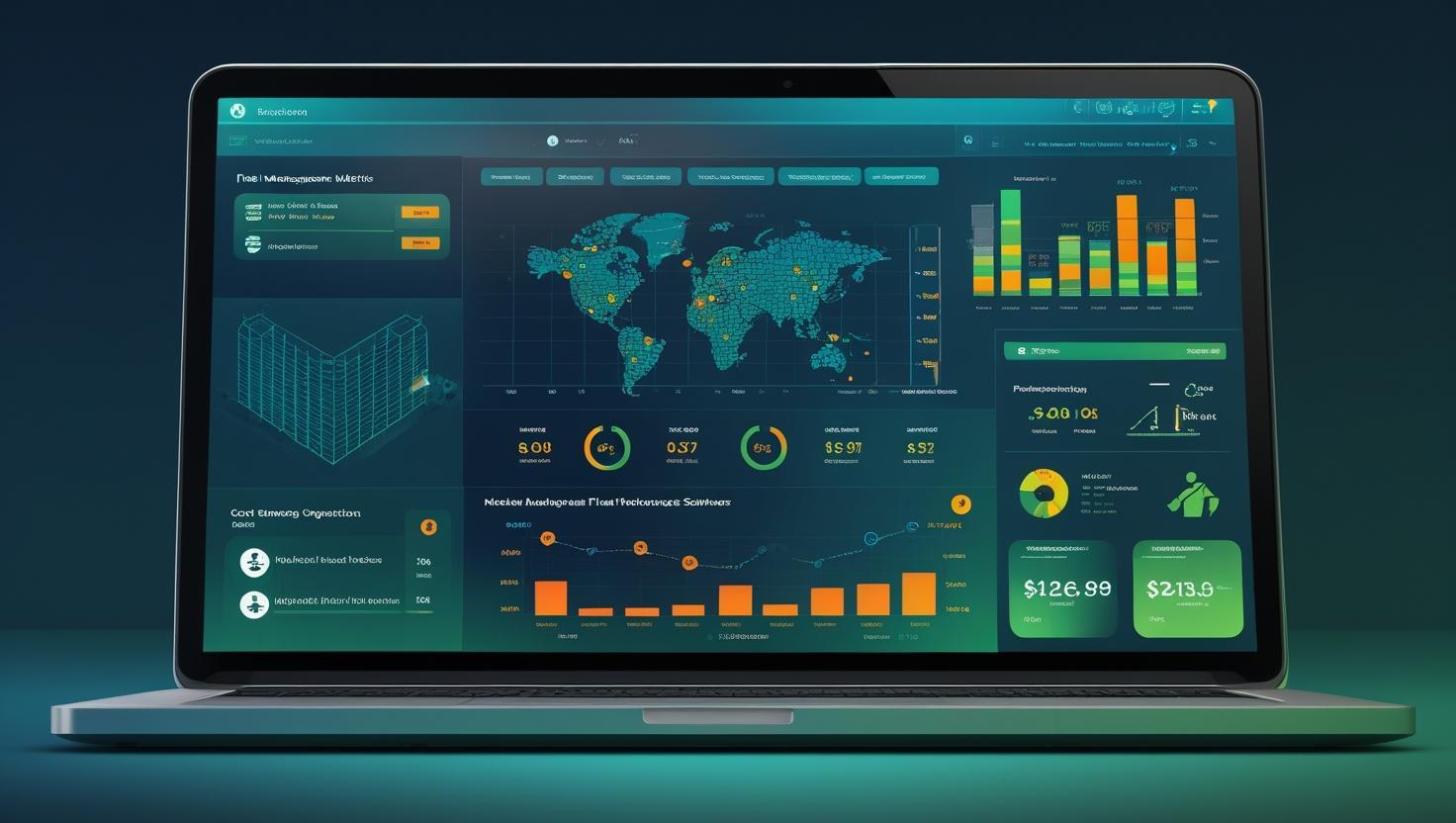In today’s fast-paced logistics and transportation industry, managing a fleet effectively is not just about tracking vehicles. It requires a strategic approach that integrates data, automation, and analytics to optimize resources and improve performance. Fleet management software has emerged as a game-changer, empowering businesses to manage their fleet smarter while minimizing operational costs.
Whether you are operating a small delivery fleet or a large-scale logistics company, investing in the right fleet management system can streamline operations, ensure compliance, and increase profitability. Let’s explore the critical features and benefits of fleet management software, what to look for in a solution, and how it plays a role in the future of transportation software solutions.
Key Features of Fleet Management Software
Understanding the key functionalities of a fleet management system is crucial before implementation. Below are the most essential features that make modern fleet software indispensable:
1. Real-Time GPS Tracking
Fleet management software offers GPS integration that enables managers to monitor the real-time location of every vehicle. This helps in route optimization, timely deliveries, and quick response to unforeseen situations. Real-time tracking also increases transparency between operators and customers.
2. Driver Behavior Monitoring
With in-built telematics and AI-powered analytics, fleet software can monitor driver behavior, such as harsh braking, speeding, idling, and rapid acceleration. These insights help in coaching drivers, reducing wear and tear, and lowering fuel consumption.
3. Maintenance Scheduling
Automated reminders for oil changes, inspections, and tire rotations ensure your fleet stays in peak condition. Predictive maintenance based on usage data minimizes breakdowns, increases vehicle lifespan, and avoids costly repairs.
4. Fuel Management
Fuel is one of the biggest operational expenses in fleet operations. Fleet management software provides analytics on fuel usage, identifies inefficiencies, and offers actionable insights to control fuel costs.
5. Compliance and Reporting
Regulatory compliance is critical in transportation. The software helps keep track of documents like licenses, insurance, and inspection logs. Automated reporting assists in audits and keeps the organization in line with federal and local regulations.
Benefits of Fleet Management Software
Implementing a robust fleet management solution delivers a wide array of advantages. Let’s explore five major benefits in detail:
1. Reduced Operational Costs
Fleet management software helps cut unnecessary costs across multiple areas – from fuel and maintenance to overtime and insurance premiums. With features like route optimization and maintenance alerts, businesses can avoid unplanned expenses and save significantly in the long run.
2. Enhanced Fleet Visibility
Knowing where your vehicles are at any given time allows for smarter decisions. Real-time visibility into vehicle status, location, and performance helps dispatchers assign tasks more efficiently, reduces delays, and ensures safety.
3. Improved Driver Performance
Monitoring driver behavior leads to proactive improvements. Managers can provide training based on specific driving habits, improve safety standards, and reward top-performing drivers. This not only boosts morale but also contributes to safer roads and fewer incidents.
4. Increased Customer Satisfaction
When deliveries are timely, accurate, and well-communicated, customers notice. Fleet management software improves delivery time estimates and provides real-time updates to clients, enhancing trust and satisfaction.
5. Scalability and Growth
As your fleet grows, managing more vehicles manually becomes difficult. Software solutions scale with your operations, allowing you to manage hundreds of vehicles efficiently without sacrificing control or performance.
Why Work with a Transportation Software Development Company?
Choosing the right partner for your fleet management system is crucial. A transportation software development company can tailor solutions to your specific needs, integrate third-party tools, and provide long-term support. They bring industry-specific experience that ensures your software meets compliance, performance, and scalability requirements.
These companies also help integrate advanced technologies such as IoT, AI, machine learning, and blockchain to future-proof your systems. Whether you're looking to build a custom dashboard or need mobile support for drivers, an experienced development partner is key.
Future of Fleet and Transportation Software
The fleet management landscape is rapidly evolving with technology advancements. Here are some trends shaping the future:
- Autonomous Fleet Management: AI and self-driving technology are on the horizon, and fleet software is being developed to support semi-autonomous operations.
- Electric Vehicle Integration: With the rise in EV fleets, management software is adapting to handle battery performance, charging schedules, and energy consumption analytics.
- IoT Integration: The Internet of Things (IoT) will continue to provide real-time insights from connected vehicles, enabling smarter decisions and proactive maintenance.
- Cloud-Based Solutions: Cloud technology ensures data accessibility, scalability, and remote monitoring capabilities for dispersed operations.
- Predictive Analytics: Using historical and real-time data to anticipate issues, optimize routes, and improve overall performance will become the norm.
How to Choose the Right Fleet Management Solution
Not all fleet management software is created equal. Here are the key factors to consider:
- Customization: Choose a solution that can be tailored to your business model and operational size.
- Integration Capabilities: Ensure the software can integrate with existing ERP, GPS, fuel card systems, and HR platforms.
- Mobile Access: A good fleet management system should support mobile apps for drivers and managers.
- User-Friendly Interface: The easier it is to use, the faster your team will adapt.
- Customer Support: Reliable technical support ensures smooth operations and issue resolution.
Final Thoughts
Fleet management is no longer just about knowing where your vehicles are – it's about harnessing data, improving processes, and making smarter business decisions. Investing in the right fleet management software can revolutionize your logistics operations, reduce costs, and provide unmatched control over your assets.
As the industry continues to evolve, forward-thinking companies must adopt flexible, intelligent solutions to stay competitive. Partnering with an experienced transportation software development company ensures your fleet is equipped with the tools it needs to succeed today and in the future.

